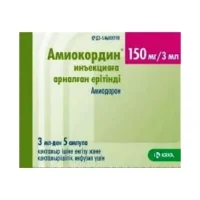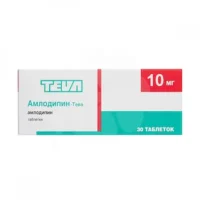Description
Amlodipine 10 mg Tablets
Composition
Each tablet contains 10 mg of Amlodipine besylate.
Mechanism of Action
Amlodipine is a calcium channel blocker that works by relaxing blood vessels, reducing peripheral vascular resistance, and decreasing the workload on the heart.
Pharmacological Properties
Amlodipine exerts its antihypertensive and antianginal effects by inhibiting the influx of calcium ions into vascular smooth muscle cells and cardiac muscle cells, leading to vasodilation and decreased myocardial contractility.
Indications for Use
Amlodipine is indicated for the treatment of hypertension and chronic stable angina.
Contraindications
Do not use Amlodipine if you are allergic to amlodipine or any other dihydropyridine calcium channel blockers. It is contraindicated in patients with severe hypotension or shock.
Side Effects
Common side effects of Amlodipine may include peripheral edema, dizziness, headache, and flushing. Rare but serious side effects may include hypotension, palpitations, and hepatic dysfunction.
Usage Instructions
The usual starting dose of Amlodipine is 5 mg once daily, with a maximum recommended dose of 10 mg once daily. It can be taken with or without food.
Benefits Compared to Analogues
Amlodipine has shown superior efficacy in lowering blood pressure and reducing the risk of cardiovascular events compared to other calcium channel blockers.
Suitable Patient Groups
Amlodipine is suitable for adult patients, including the elderly, with hypertension or chronic stable angina. It is not recommended for use in children.
Storage and Shelf Life
Store Amlodipine tablets in a cool, dry place away from direct sunlight. Check the expiration date on the packaging and do not use the product if expired.
Packaging Description
Amlodipine 10 mg tablets are typically available in blister packs of 30 tablets each, ensuring convenient and accurate dosing.
Clinical Evidence and Proven Effectiveness
Amlodipine has been extensively studied in clinical trials, demonstrating its efficacy in lowering blood pressure, improving blood flow, and reducing the risk of cardiovascular events. One study published in the Journal of the American College of Cardiology showed a significant reduction in cardiovascular events in hypertensive patients treated with amlodipine.





